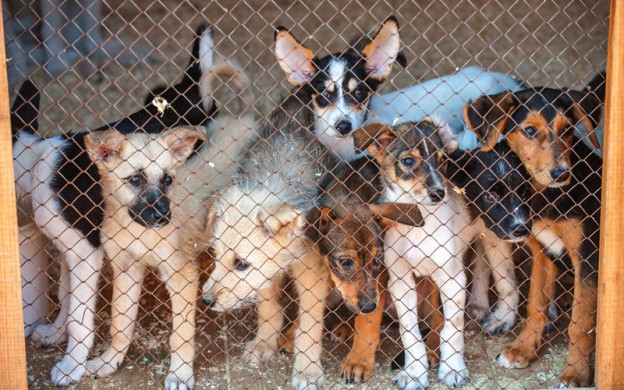If data from American Pet Products Association (APPA) is anything to by, then 49% of American households own or have owned a dog.
With such numbers, one can only expect that the breeders are busy.
But how many dogs exactly are sold by breeders?
Well, the Humane Society estimates that approximately 2.6 million dogs are bought from breeders each year.
As huge as these figures are, we can expect the numbers to continue rising, especially due to a growing demand for pedigree and designer breeds like Labradoodles and Goldendoodles.
These dogs are often seen as low-maintenance alternatives to purebreds, and their popularity has helped to drive up demand for puppies from breeders.
While the AKC does not advocate for or against buying dogs from breeders, they do encourage potential dog owners to do their research before making a purchase.
This includes checking out a breeder’s facilities, asking about their health and welfare policies, and getting references from other customers.
By taking these steps, buyers can help find a reputable breeder and get a healthy, happy puppy.
How Many People Buy Pets From Breeders?

With so many animals in need of homes, it’s a good thing that many people opt to adopt their pets from shelters or rescue organizations.
In fact, according to the American Society for Prevention of Cruelty to Animals (ASPCA), only 34% of dogs are obtained from breeders. The rest of the pet owners either get their puppies from family, friends, or shelters.
While there are benefits to both adoption and purchasing from a breeder, it’s a good idea to consider adopting a dog that is in dire need of a home.
Every year, shelters and rescue organizations are forced to euthanize over 1.2 million puppies because they typically receive more dogs than there are willing families to adopt them.
Related Post: Pros and Cons of Adopting Vs. Buying a Pet
What Happens To Puppies That Breeders Don’t Sell?

Every year, millions of puppies are born in the United States.
While many of these puppies will find loving homes, many more end up being returned to the pet store or given to a shelter.
So, what happens to these unsold puppies?
Many pet stores have partnerships with puppy mills, which are large-scale commercial breeding operations.
Even though breeders are usually licensed by the government, many disregard ethics when breeding their puppies.
For instance, there are lots of puppy mills that keep dogs in overcrowded and unsanitary conditions, and they often don’t receive proper veterinary care.
This would explain why lots of puppies from puppy mills are often sick or have behavioral problems.
The cumulative effect is pet store puppies are less desirable to the public and are therefore less likely to get adopted by a new family.
If a puppy mill puppy doesn’t get adopted from the pet store, the store will typically mark down the price until someone buys the puppy.
If the puppy still doesn’t sell, the store may give the puppy away to an employee, friend, or rescue group. In some cases, the store may even euthanize the puppy.
For the most part, ethical and reputable breeders seldom have excess puppies. They do not overbreed their dogs and they try to place each puppy in a home.
In the rare cases where they can’t place a puppy, they will remain with them and take care of them for as long as it takes.
Related Post: What Does Petland Do With Puppies That Don’t Sell?
What Do Breeders Do With Retired Dogs?

When people think about professional dog breeders, they often imagine large kennels with rows of cages housing dozens of dogs.
However, most reputable breeders keep their dogs in small groups or even individually to provide them with the best possible care.
This means that when a dog is no longer being used for breeding, the breeder must find a new home for him or her.
While some breeders may sell their retired dogs to pet stores or others, many take care of their dogs for the rest of their lives.
This ensures that the dogs will be well-cared for and loved, even after they are no longer participating in the breeding process.
As a result, breeders often have a deep bond with all of the dogs in their care, even those who have retired.
The unregulated breeders who are usually more interested in profits than in the well-being of their animals will dispose of a breeding animal as soon as they can’t breed anymore.
They do this by donating them to a shelter and some even just put them to rest.
This is one of the reasons why pet parents are encouraged to only get their pets from reputable breeders who are known to try their animals with the utmost respect.
Final Thoughts
Every year, millions of the pets that are bred end up in shelters where most of them end up being euthanized.
The best way to put an end to this is to cut the demand—if every pet parent adopts instead of buying, the puppy mills will be forced to stop the mass production of dogs because it won’t make business sense.
However, when you must use a breeder, only stick with the reputable breeders who are known to treat their animals right.
As an Amazon Associate, we may receive a small commission from qualifying purchases but at no extra cost to you. Learn more. Amazon and the Amazon logo are trademarks of Amazon.com, Inc, or its affiliates.

